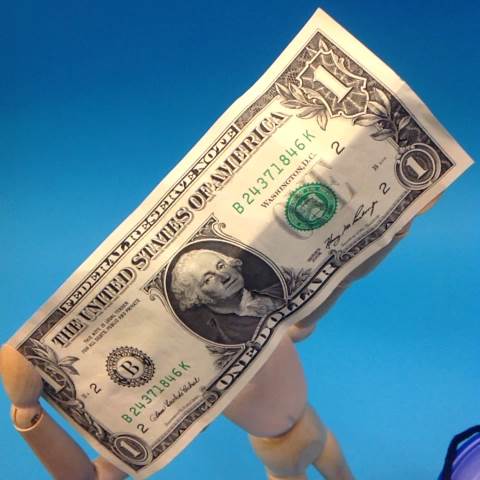 The U.S. dollar headed lower during Wednesday's Asian trading session as investors shed the safe-haven currency on refreshed optimism following announcements that global governments continued planning to reopen their economies. The Australian-dollar, typically very sensitive to risk sentiment, surged 0.77 percent against the greenback, trading at $0.654 as of 2:00 p.m. HK/SIN. The New Zealand dollar hit a one-week high of $0.6093 as the country claims to have nearly eradicated the deadly virus within its borders and plans for aggressive economic reopening. The dollar traded near six-week lows against the yen, trading down 0.309 percent to 106.53 in the mid-afternoon. It also eased against all of its other currency partners. The British pound jumped 0.43 percent against the dollar to trade at $1.248, and the euro was up 0.28 percent to $1.085. The dollar index was down 0.2 percent to 99.67 .DXY.
The U.S. dollar headed lower during Wednesday's Asian trading session as investors shed the safe-haven currency on refreshed optimism following announcements that global governments continued planning to reopen their economies. The Australian-dollar, typically very sensitive to risk sentiment, surged 0.77 percent against the greenback, trading at $0.654 as of 2:00 p.m. HK/SIN. The New Zealand dollar hit a one-week high of $0.6093 as the country claims to have nearly eradicated the deadly virus within its borders and plans for aggressive economic reopening. The dollar traded near six-week lows against the yen, trading down 0.309 percent to 106.53 in the mid-afternoon. It also eased against all of its other currency partners. The British pound jumped 0.43 percent against the dollar to trade at $1.248, and the euro was up 0.28 percent to $1.085. The dollar index was down 0.2 percent to 99.67 .DXY.
Gains against the dollar were tempered, however, as investors waited to hear the Federal Reserve announcement on Wednesday afternoon. Investors are largely expecting the Fed to keep interest rates stable at their current near-zero levels, but they are looking for hints to where the central bank expects the country's monetary policy to move in the future. What investors are not expecting, however, is an outlook from the Fed, as it is widely believed that it is impossible to predict the economy's trajectory when there are so many unknowns. Though many states are starting to ease their social distancing restrictions, it remains unknown how quickly the economy can bounce back, and if the easing of restrictions will cause a second wave of infections that will require new lockdowns. Also uncertain is whether there will be future seasonal recurrences of COVID-19.
Also putting pressure on the greenback is the widespread loss of faith in U.S. President Donald Trump's statements about the coronavirus. Trump lost credibility last week when he mentioned that perhaps injecting infected patients with disinfectant or treating them with internal ultraviolet lights can help with treatment. A Reuters/IPSOS poll released yesterday found that fewer than half of all adults in the U.S. said they were "very" or "somewhat" likely to follow Trump's virus recommendations. The poll showed that only 47 percent of American adults would rely on Trump's statements, a full 15 percentage points lower than those relying on Trump's advice in March. Nevertheless, despite skepticism about Trump's coronavirus suggestions, the poll showed that 43 percent of Americans still approve of Trump's job performance overall.
